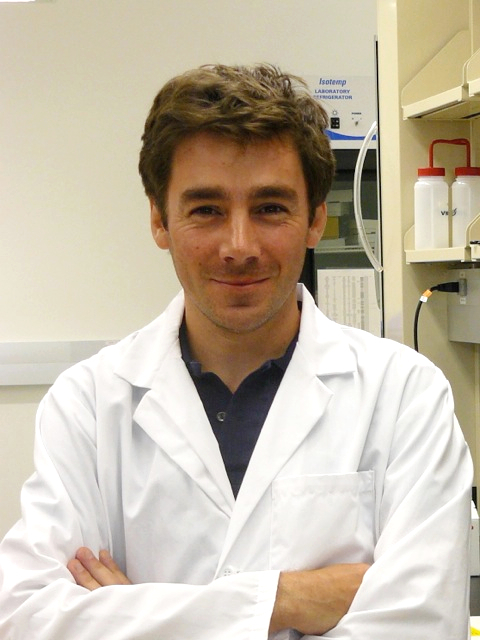Last month we reviewed the proteasome, a cell structure rarely discussed in the context of HIV but, according to researchers at amfAR’s Institute for HIV Cure Research, one that may offer a novel target in attempts to disrupt viral latency. The proteasome is potentially amenable to attack by two currently used anti-cancer drugs.
 Dr. Nicolas ChomontThis month we highlight the work of amfAR-funded researcher Dr. Nicolas Chomont of the University of Montreal, who is studying another component of normal cells that is also a target of certain cancer therapies and has promise in multi-pronged HIV eradication strategies.
Dr. Nicolas ChomontThis month we highlight the work of amfAR-funded researcher Dr. Nicolas Chomont of the University of Montreal, who is studying another component of normal cells that is also a target of certain cancer therapies and has promise in multi-pronged HIV eradication strategies.
Writing in the journal Nature Communications, Chomont and colleagues examined PD-1, a protein found in higher than expected amounts on the surface of T cells latently infected with HIV. They showed that PD-1 inhibited the ability of certain types of immune stimulation to drive HIV out of its dormant state.
Using T cells from HIV-infected individuals on long-term antiretroviral therapy, the investigators found that blocking PD-1 with pembrolizumab (Keytruda)—a drug currently used in the treatment of many formerly untreatable types of cancer—enabled a second drug, known as a latency reversing agent, to induce HIV escape from latency. Forcing HIV out of latency is a key component of the proposed “shock and kill” approach to curing HIV.
In support of these test-tube studies, Chomont and associates studied an HIV-infected individual who was treated with pembrolizumab in an attempt to cure the person’s malignant melanoma. Markers consistent with latent HIV were decreased by this treatment.
The authors caution that it remains to be determined whether pembrolizumab or other anti-PD-1 cancer drugs, collectively known as immune checkpoint inhibitors, can activate HIV in all the cell types currently thought to contribute to the latent state. But they look forward to pursuing this line of research in the quest for an HIV cure.
Dr. Laurence is amfAR’s senior scientific consultant.